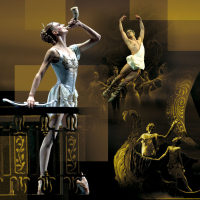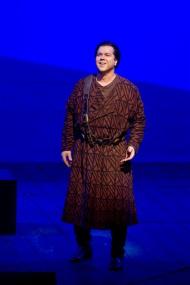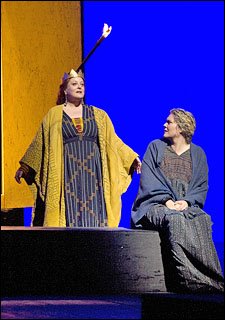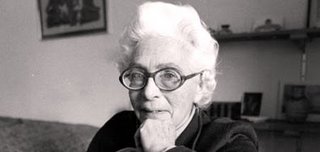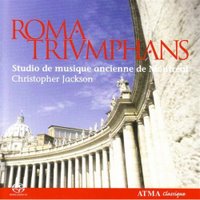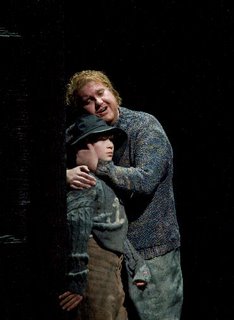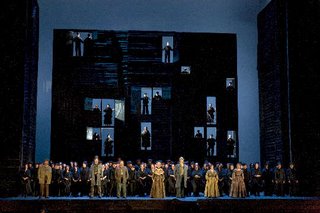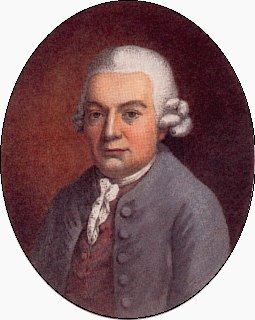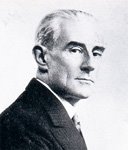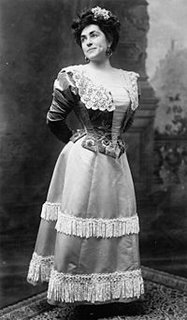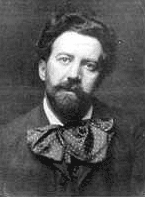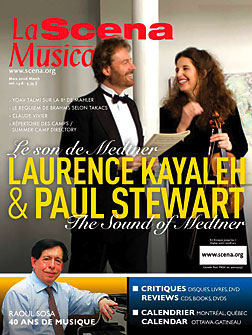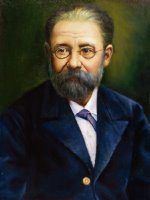PRESS RELEASE
For Release on March 10th, 2008 DIGISCREEN PARTNERS WITH OPUS ARTE AND ROYAL OPERA HOUSE TO LAUNCH HIGH DEFINITION SCREENINGS IN CINEMAS WORLDWIDERoyal Opera House in HD Spring Performance Series will launch March 30th at
Empire Theatres Across Canada.
Royal Opera House (ROH) owned Opus Arte announced today that they have signed an exclusive agreement with Montreal based DigiScreen Corporation and The Pillar Group, Ltd. for distribution of ballets and operas from ROH and other international Opera Houses and Dance Companies represented by Opus Arte in cinemas worldwide.
DigiScreen Corporation is pleased to announce that the Royal Opera House in HD Spring Performance Series will be launched on March 30th, 2008 in cinemas across Canada and the U.S. This impressive series will consist of four of The Royal Ballet’s most beloved and admired works and The Royal Opera’s passionately popular CARMEN– all digitally captured for the first time. The performances were all recorded live at London’s historic Royal Opera House in Covent Garden on cinema grade High Definition in front of full houses and accompanied by the highly acclaimed Royal Opera House Orchestra.
DigiScreen Corporation has been a pioneer in the acquisition and distributing of high quality digital content for theatrical presentations in cinemas and believes that seeing ballet and opera performances projected on large-formant cinema screens to capture up-close all the extravagant costumes, stunning sets and dazzling performances is a marvelous occasion for patrons of these arts and a terrific opportunity to introduce new audiences to ballet and opera.
This spectacular performance series will be screened as special events at over 20 Empire Theatres and independent cinemas across Canada - including all major cities.
Tony Hall, Chief Executive of the Royal Opera House and Executive Chairman of Opus Arte, comments:
“I am excited by this pioneering new direction for the Royal Opera House at the start of the 21st-century. Being in the vanguard of the burgeoning digital platform will allow us to bring brilliant ballets and operas from the world renowned Royal Ballet and Royal Opera to cinema screens all over the globe. The work of the Royal Opera House needs to be seen by the widest global audience and these worldwide cinema screenings will raise our international profile considerably. Combined with the ever expanding number of productions being filmed by Opus Arte at the ROH, and at other great opera and dance companies, then we really have an unbeatable line-up of cinema entertainment. Having experienced the performances first hand, I cannot emphasize enough what an exhilarating experience these screenings live or recorded are, the High Def digital technology coupled with Surround Sound is remarkable.”
Hans Petri, Managing Director of Opus Arte adds:
“In order to recreate the excellence of the stage performances in a cinematic environment, we have been highly selective about our choice of partners. The Pillar Group, Ltd. is one of the market leaders in providing top quality alternative content to cinema chains. In turn they are partnered with digital exhibition innovator DigiScreen which guarantees the highest quality digital sound and vision. We have already begun digital screenings of operas, we a delighted to be able to offer now a greater variety of product as we move forward, particularly exciting is the new opportunity for ballet audiences. We are confident we can provide audiences with the very best digital film experience. There is so much more to look forward to.”
Mark Hooper, CEO of DigiScreen Corporation says: “This is our first foray into presenting opera and ballet; early signs are that there is a huge appetite for this kind of digital film experience. Our introduction to Opus Arte through the Royal Opera House has been an exciting development and we look forward to a long and fruitful collaboration.”
Dean Leland, Vice-President Marketing & Media for Empire Theatres said:
“Empire Theatres has been at the forefront of upgrading our in-theatre technology in order to be able to present Alternative Content, including performing arts events, to audiences across Canada. Opera and ballet fans have already demonstrated that they love to experience these presentations at our locations and we know this spring season is going to be well received.”
The inaugural screening will take place across Canada on Sunday, March 30th, 2008 and is the first cinematic performance for London’s Royal Ballet. On March 30th Canadians will be enchanted by their stunning, lavish production of one of the brightest jewels in the Royal Ballet’s crown, SYLVIA.
England’s most famous and adored ballerina, Darcey Bussell stars in the title role and London’s Royal Ballet founder Sir Frederick Ashton has choreographed an extravagant production to composer Leo Delibes’ legendary, dazzling score - making SYLVIA a perfect choice to launch the Royal Opera House in HD Spring Performance Series.
Following on Saturday, April 19th 2008 is The Royal Opera’s 2006 production of CARMEN directed by Francesca Zambello. At the heart of the story of one woman’s tangled relationship with two men is Carmen herself, played by the fabulous singer-actor Anna Caterina Antonacci. The great Italian soprano is matched by two devilishly handsome men as her love interest; steamingly sexy German tenor, Jonas Kaufmann and the smoldering Italian baritone Ildebrando D’Arcangelo.
On Saturday, May 24th 2008 is The Royal Ballet’s ROMEO & JULIET. Kenneth MacMillan’s great interpretation of Shakespeare’s enduring tragedy is one of the most popular works in The Royal Ballet repertory. ROMEO & JULIET partners extraordinary prima ballerina Tamara Rojo with Cuban ballet phenomenon Carlos Acosta. .Next in the spring series on Saturday, June 7th 2008 is The Royal Ballet’s THE TALES OF BEATRIX POTTER, bringing the characters from the famous stories alive. The production’s ingenious use of scale when designing the sets and their spectacular costumes and masks quickly draws audiences in to the wondrous world of Peter Rabbit, Jeremy Fisher and Jemima Puddleduck.
Lastly, on Saturday, June 21st 2008 The Royal Ballet’s THE SLEEPING BEAUTY combines, in a single work, all the charms and virtuosity that ballet has to offer led by two of The Royal Ballet’s finest dancers; the beautiful Alina Cojocaru stars as Princess Aurora and the dark and handsome Federico Bonelli stars as Prince Florimund. Tchaikovsky’s glorious score for this beautiful ballet is played by the Orchestra of the Royal Opera House in London.
Tickets will be available at $19.95 + tax per adult, $16.95 + tax per senior and $9.95 + tax per child. For cinema locations and to purchase advance tickets visit
www.empiretheatres.com or
www.digiscreen.ca. For information on The Royal Ballet and The Royal Opera
www.roh.org.uk.
DigiScreen Corporation, a next-generation distributor of high quality digital content, was founded in 2001. Based in Montreal, DigiScreen Corp. delivers alternative content directly to digital projectors from a server containing multiple compressed high-definition presentations. DigiScreen servers are currently installed across Canada and are in the process of being deployed in the USA, United Kingdom, Austria, Switzerland and Germany. The company provides clients with full-service HD distribution. Its extensive activities include content acquisition, HD encoding, viral marketing support and digital delivery systems for theatrical presentations in cinemas.
Empire Theatres Limited is a 100% owned subsidiary of Empire Company Limited with its corporate headquarters in Stellarton, NS and regional offices in Halifax, NS, Toronto, ON and Calgary, AB. Empire Theatres owns and operates 51 theatres from Newfoundland to British Columbia.Empire Theatres is Canada's second largest and fastest growing film exhibition company providing an exciting out-of-home entertainment experience including traditional film exhibition as well as other content using its digital and satellite capabilities.With approximately 3,000 employees, Empire Theatres provides excellent employment opportunities for the youth of Canada in an exciting and energetic industry.
Labels: Digiscreen, Empire Theatres, HD Screenings in Cinemas, Opus Arte, Royal Opera House
